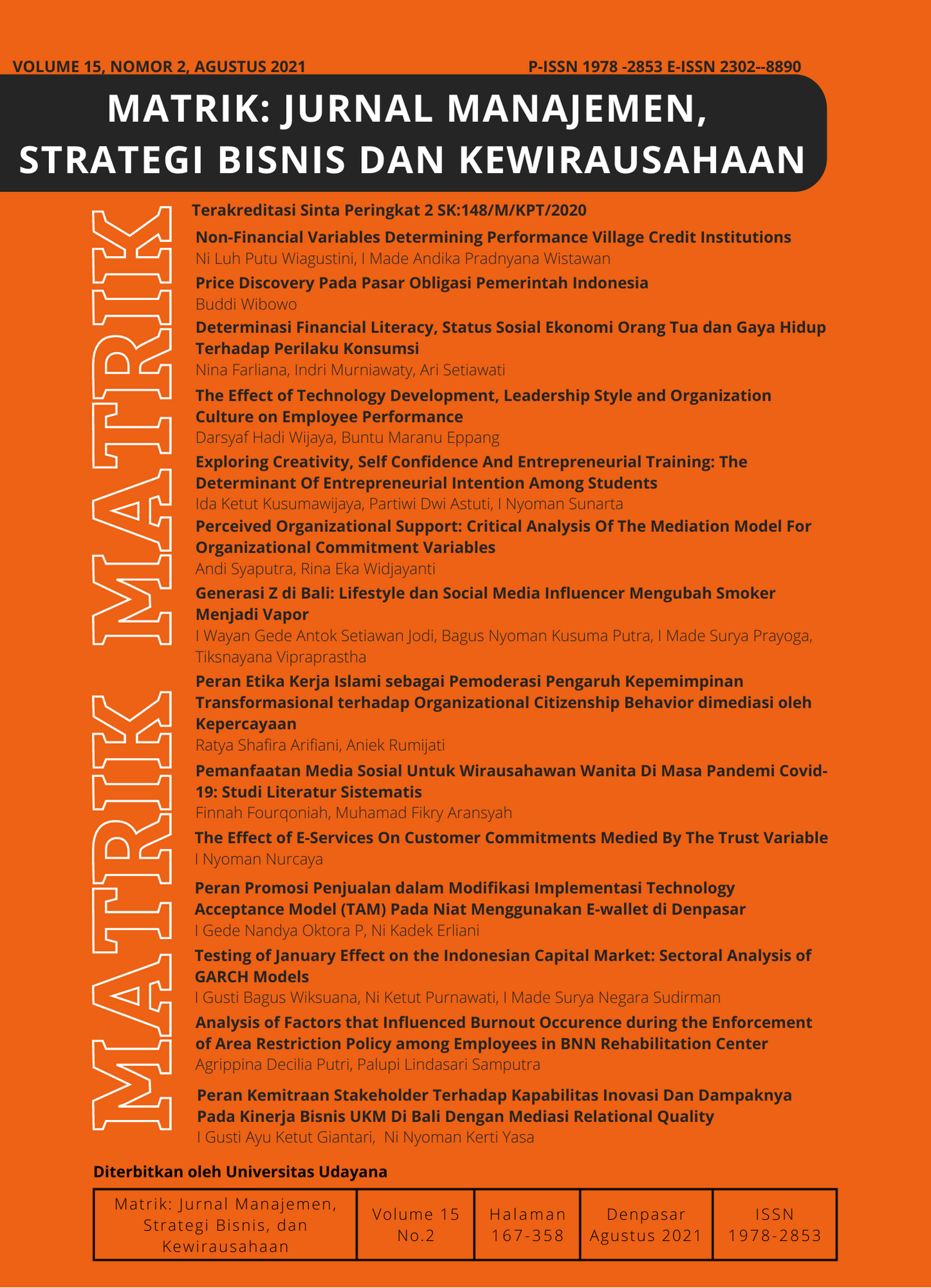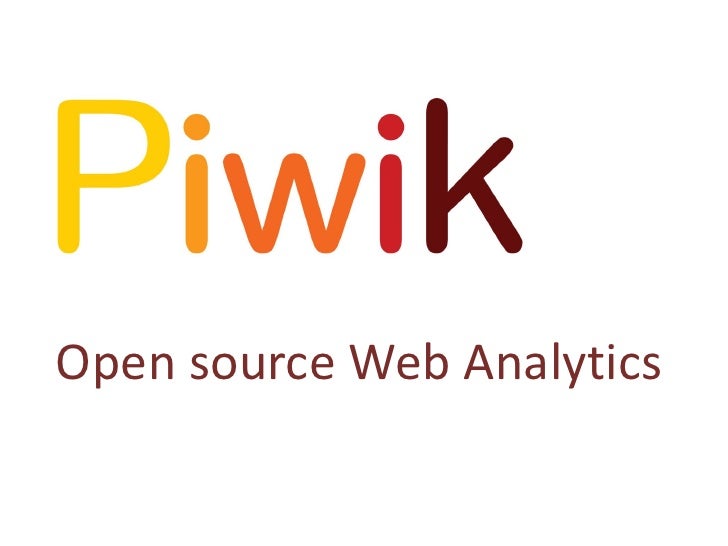Perceived Organizational Support: Critical Analysis Of The Mediation Model For Organizational Commitment Variables
Abstract
There have been numerous works of literature investigating organizational commitment (OC) of an individual employee for the issue is considered necessary to receive more concern from time to time. This is also because an individual’s performance will become better along with the increase in OC. An individual’s intrinsic reward (IR) becomes one of the supporting factors to build individual employee commitment. In this study, we were investigating perceived organizational support (POS) as the other supporting aspect that builds better commitment. The objective of this study is to investigate the role of POS mediation in the correlation between IR and OC. The Structural Equation Modelling test indicates a positive response. POS succeeded in mediating IR against OC which means this study shows employee behavior in line with organizational goals
Downloads
References
Ahmed, I., Nawaz, M. M., Ali, G., & Islam, T. (2015). Perceived organizational support and its outcomes: A meta-analysis of latest available literature. Management Research Review. https://doi.org/10.1108/MRR-09-2013-0220
Altunoğlu, A. E., & Bulgurcu Gürel, E. B. (2015). Effects of Leader–member Exchange and Perceived Organizational Support on Organizational Innovation: The Case of Denizli Technopark. Procedia - Social and Behavioral Sciences. https://doi.org/10.1016/j.sbspro.2015.10.170
Aubé, C., Rousseau, V., & Morin, E. M. (2007). Perceived organizational support and organizational commitment: The moderating effect of locus of control and work autonomy. Journal of Managerial Psychology. https://doi.org/10.1108/02683940710757209
Byrne, Z., Pitts, V., Chiaburu, D., & Steiner, Z. (2011). Managerial trustworthiness and social exchange with the organization. Journal of Managerial Psychology. https://doi.org/10.1108/02683941111102155
Caesens, G., & Stinglhamber, F. (2014). The relationship between perceived organizational support and work engagement: The role of self-efficacy and its outcomes. Revue Europeenne de Psychologie Appliquee. https://doi.org/10.1016/j.erap.2014.08.002
Casimir, G., Ngee Keith Ng, Y., Yuan Wang, K., & Ooi, G. (2014). The relationships amongst leader-member exchange, perceived organizational support, affective commitment, and in-role performance: A social-exchange perspective. Leadership and Organization Development Journal. https://doi.org/10.1108/LODJ-04-2012-0054
Casper, W. J., Harris, C., Taylor-Bianco, A., & Wayne, J. H. (2011). Work-family conflict, perceived supervisor support and organizational commitment among Brazilian professionals. Journal of Vocational Behavior. https://doi.org/10.1016/j.jvb.2011.04.011
Čech, M., Yao, W., Samolejová, A., Li, J., & Wicher, P. (2016). Human Resource Management in Chinese manufacturing companies. Perspectives in Science. https://doi.org/10.1016/j.pisc.2015.11.003
Cho, Y. J., & Perry, J. L. (2012). Intrinsic Motivation and Employee Attitudes: Role of Managerial Trustworthiness, Goal Directedness, and Extrinsic Reward Expectancy. Review of Public Personnel Administration. https://doi.org/10.1177/0734371X11421495
Collins, R., & Blau, P. M. (1979). Inequality and Heterogeneity: A Primitive Theory of Social Structure. Social Forces. https://doi.org/10.2307/2577612
DeConinck, J. B. (2010). The effect of organizational justice, perceived organizational support, and perceived supervisor support on marketing employees’ level of trust. Journal of Business Research. https://doi.org/10.1016/j.jbusres.2010.01.003
Einolander, J. (2015). Evaluating Organizational Commitment in Support of Organizational Leadership. Procedia Manufacturing. https://doi.org/10.1016/j.promfg.2015.07.300
Eisenberger, R., Huntington, R., Hutchison, S., & Sowa, D. (1986). Perceived Organizational Support. Journal of Applied Psychology. https://doi.org/10.1037/0021-9010.71.3.500
Eliyana, A., Ma’arif, S., & Muzakki. (2019). Job satisfaction and organizational commitment effect in the transformational leadership towards employee performance. European Research on Management and Business Economics. https://doi.org/10.1016/j.iedeen.2019.05.001
Gaudet, M. C., & Tremblay, M. (2017). Initiating structure leadership and employee behaviors: The role of perceived organizational support, affective commitment and leader–member exchange. European Management Journal. https://doi.org/10.1016/j.emj.2017.04.001
Giancola, F. L. (2014). Should HR Professionals Devote More Time to Intrinsic Rewards? Compensation & Benefits Review. https://doi.org/10.1177/0886368714537446
Haines, V. Y., Saba, T., & Choquette, E. (2008). Intrinsic motivation for an international assignment. International Journal of Manpower. https://doi.org/10.1108/01437720810888571
Haneda, S., & Ito, K. (2018). Organizational and human resource management and innovation: Which management practices are linked to product and/or process innovation? Research Policy. https://doi.org/10.1016/j.respol.2017.10.008
Islam, T., Ahmed, I., & Ahmad, U. N. B. U. (2015). The influence of organizational learning culture and perceived organizational support on employees’ affective commitment and turnover intention. Nankai Business Review International. https://doi.org/10.1108/NBRI-01-2015-0002
Karatepe, O. M. (2015). Do personal resources mediate the effect of perceived organizational support on emotional exhaustion and job outcomes? International Journal of Contemporary Hospitality Management. https://doi.org/10.1108/IJCHM-09-2013-0417
Khunsoonthornkit, A., & Panjakajornsak, V. (2018). Structural equation model to assess the impact of learning organization and commitment on the performance of research organizations. Kasetsart Journal of Social Sciences. https://doi.org/10.1016/j.kjss.2018.07.003
Kianto, A., Sáenz, J., & Aramburu, N. (2017). Knowledge-based human resource management practices, intellectual capital and innovation. Journal of Business Research. https://doi.org/10.1016/j.jbusres.2017.07.018
Kim, A., & Mor Barak, M. E. (2015). The mediating roles of leader-member exchange and perceived organizational support in the role stress-turnover intention relationship among child welfare workers: A longitudinal analysis. Children and Youth Services Review. https://doi.org/10.1016/j.childyouth.2014.11.009
Kokubun, K. (2018). Education, organizational commitment, and rewards within Japanese manufacturing companies in China. Employee Relations. https://doi.org/10.1108/ER-12-2016-0246
Kokubun, K. (2019). Organizational commitment, rewards and education in the Philippines. International Journal of Organizational Analysis. https://doi.org/10.1108/ijoa-02-2019-1667
Liao, C., Wayne, S. J., Liden, R. C., & Meuser, J. D. (2017). Idiosyncratic deals and individual effectiveness: The moderating role of leader-member exchange differentiation. Leadership Quarterly. https://doi.org/10.1016/j.leaqua.2016.10.014
Makanjee, C. R., Hartzer, Y. F., & Uys, I. L. (2006). The effect of perceived organizational support on organizational commitment of diagnostic imaging radiographers. Radiography. https://doi.org/10.1016/j.radi.2005.04.005
Martin-Perez, V., & Martin-Cruz, N. (2015). The mediating role of affective commitment in the rewards–knowledge transfer relation. Journal of Knowledge Management. https://doi.org/10.1108/JKM-03-2015-0114
McBey, K., Karakowsky, L., & Ng, P. (2017). Can I make a difference here? The impact of perceived organizational support on volunteer commitment. Journal of Management Development. https://doi.org/10.1108/JMD-05-2015-0078
Meyer, J. P., Allen, N. J., & Gellatly, I. R. (1990). Affective and Continuance Commitment to the Organization: Evaluation of Measures and Analysis of Concurrent and Time-Lagged Relations. Journal of Applied Psychology. https://doi.org/10.1037/0021-9010.75.6.710
Monteiro de Castro, M. L., Reis Neto, M. T., Ferreira, C. A. A., & Gomes, J. F. da S. (2016). Values, motivation, commitment, performance and rewards: analysis model. Business Process Management Journal. https://doi.org/10.1108/BPMJ-09-2015-0132
Nazir, S., Shafi, A., Qun, W., Nazir, N., & Tran, Q. D. (2016). Influence of organizational rewards on organizational commitment and turnover intentions. Employee Relations. https://doi.org/10.1108/ER-12-2014-0150
Newman, A., & Sheikh, A. Z. (2012). Organizational rewards and employee commitment: A Chinese study. Journal of Managerial Psychology. https://doi.org/10.1108/02683941211193866
Niemiec, C. P., Ryan, R. M., & Deci, E. L. (2009). The path taken: Consequences of attaining intrinsic and extrinsic aspirations in post-college life. Journal of Research in Personality. https://doi.org/10.1016/j.jrp.2008.09.001
Ocampo, A. C. G., Restubog, S. L. D., Liwag, M. E., Wang, L., & Petelczyc, C. (2018). My spouse is my strength: Interactive effects of perceived organizational and spousal support in predicting career adaptability and career outcomes. Journal of Vocational Behavior. https://doi.org/10.1016/j.jvb.2018.08.001
Oparaocha, G. O. (2016). Towards building internal social network architecture that drives innovation: a social exchange theory perspective. Journal of Knowledge Management. https://doi.org/10.1108/JKM-06-2015-0212
Panaccio, A., & Vandenberghe, C. (2009). Perceived organizational support, organizational commitment and psychological well-being: A longitudinal study. Journal of Vocational Behavior. https://doi.org/10.1016/j.jvb.2009.06.002
Rai, R., & Prakash, A. (2016). How do servant leaders ignite absorptive capacity? the role of epistemic motivation and organizational support. Revista de Psicologia Del Trabajo y de Las Organizaciones. https://doi.org/10.1016/j.rpto.2016.02.001
Rice, B., Fieger, P., Rice, J., Martin, N., & Knox, K. (2017). The impact of employees’ values on role engagement: Assessing the moderating effects of distributive justice. Leadership and Organization Development Journal. https://doi.org/10.1108/LODJ-09-2016-0223
Russell Neuman, W., Guggenheim, L., Mo Jang, S., & Bae, S. Y. (2014). The Dynamics of Public Attention: Agenda-Setting Theory Meets Big Data. Journal of Communication. https://doi.org/10.1111/jcom.12088
Schwepker, C. H., & Good, M. C. (2017). Reducing salesperson job stress and unethical intent: The influence of leader-member exchange relationship, socialization and ethical ambiguity. Industrial Marketing Management.https://doi.org/10.1016/j.indmarman.2017.08.008
Shanock, L. R., & Eisenberger, R. (2006). When supervisors feel supported: Relationships with subordinates’ perceived supervisor aupport, perceived organizational support, and performance. Journal of Applied Psychology. https://doi.org/10.1037/0021-9010.91.3.689
Simosi, M. (2012). Disentangling organizational support construct. Personnel Review. https://doi.org/10.1108/00483481211212959
Sparrowe, R. T. (2018). LMX and welfare trade-off ratios: An evolutionary perspective on leader-member relations. Leadership Quarterly. https://doi.org/10.1016/j.leaqua.2018.11.001
Su, S., Baird, K., & Blair, B. (2013). Employee organizational commitment in the Australian public sector. International Journal of Human Resource Management. https://doi.org/10.1080/09585192.2012.731775
Taba, M. I. (2018). Mediating effect of work performance and organizational commitment in the relationship between reward system and employees’ work satisfaction. Journal of Management Development. https://doi.org/10.1108/JMD-11-2016-0256
Vatankhah, S., Javid, E., & Raoofi, A. (2017). Perceived organizational support as the mediator of the relationships between high-performance work practices and counter-productive work behavior: Evidence from airline industry. Journal of Air Transport Management. https://doi.org/10.1016/j.jairtraman.2016.12.001
Wang, Z., Zhang, J., Thomas, C. L., Yu, J., & Spitzmueller, C. (2017). Explaining benefits of employee proactive personality: The role of engagement, team proactivity composition and perceived organizational support. Journal of Vocational Behavior. https://doi.org/10.1016/j.jvb.2017.04.002
Williamson, I. O., Burnett, M. F., & Bartol, K. M. (2009). The interactive effect of collectivism and organizational rewards on affective organizational commitment. Cross Cultural Management: An International Journal. https://doi.org/10.1108/13527600910930022
Wombacher, J. C., & Felfe, J. (2017). Dual commitment in the organization: Effects of the interplay of team and organizational commitment on employee citizenship behavior, efficacy beliefs, and turnover intentions. Journal of Vocational Behavior. https://doi.org/10.1016/j.jvb.2017.05.004
Zhang, Y., Zhang, J., & Li, J. (2018). The effect of intrinsic and extrinsic goals on work performance: Prospective and empirical studies on goal content theory. Personnel Review. https://doi.org/10.1108/PR-03-2017-0086
Zhou, Y., Zhang, Y., & Montoro-Sánchez, Á. (2011). Utilitarianism or romanticism: The effect of rewards on employees’ innovative behaviour. International Journal of Manpower. https://doi.org/10.1108/01437721111121242
 This work is licensed under a Creative Commons Attribution-ShareAlike 4.0 International License.
This work is licensed under a Creative Commons Attribution-ShareAlike 4.0 International License.

















